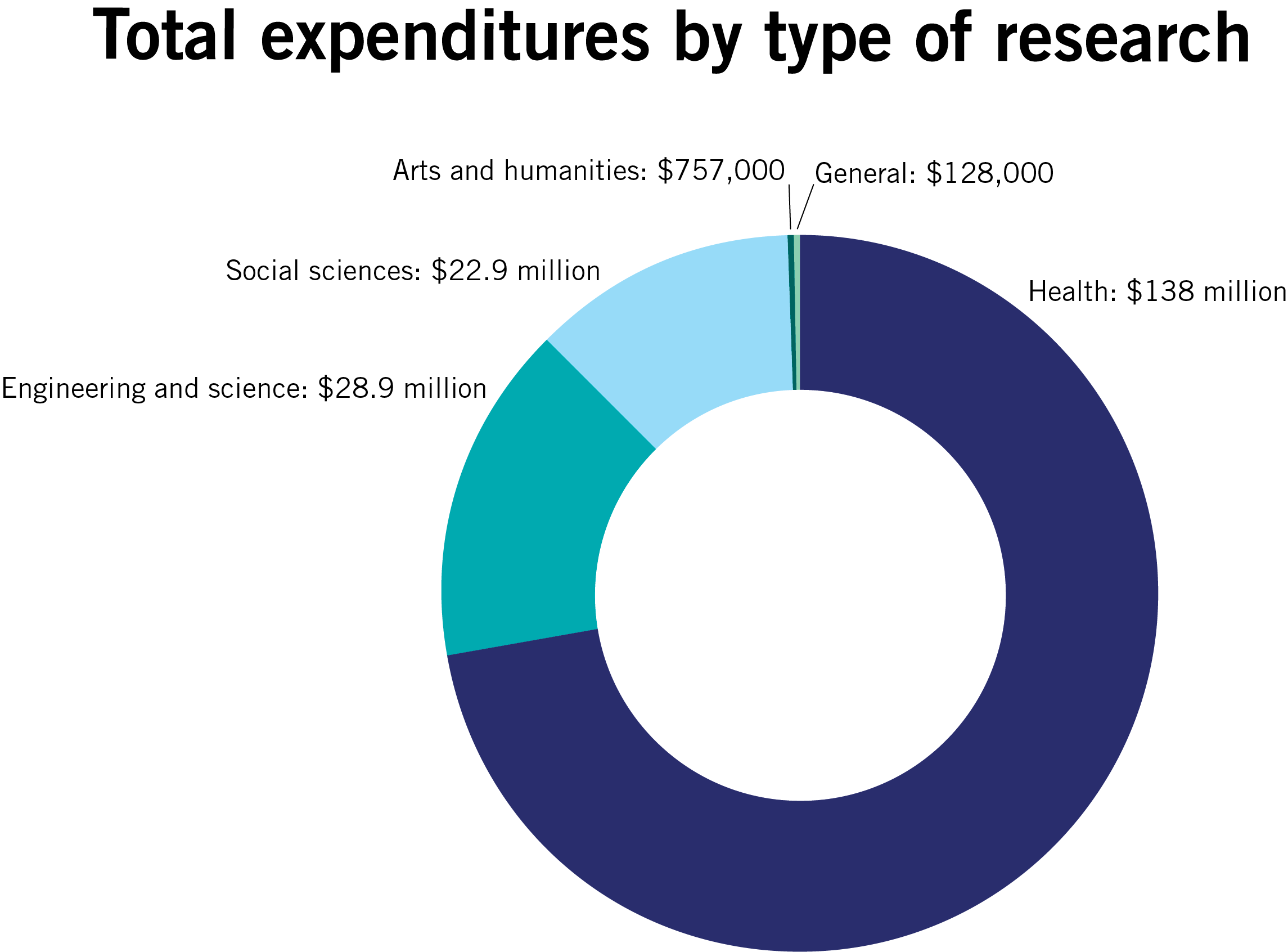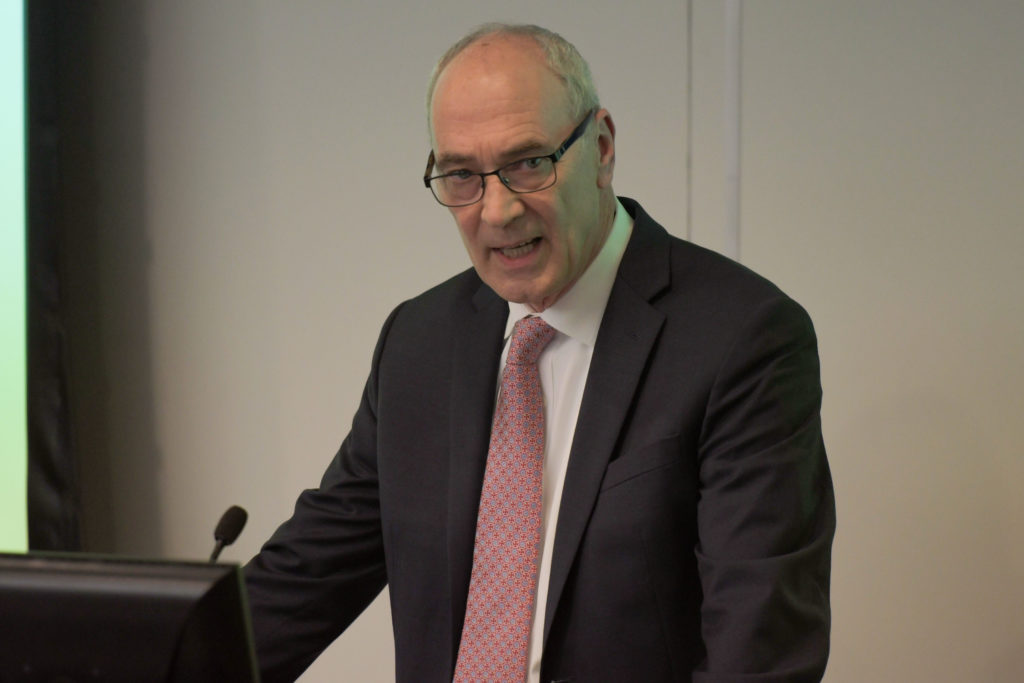For the third consecutive fiscal year, GW has increased its spending on research and produced hundreds of books and other works.
The University amounted $190.7 million in research expenditures in fiscal year 2018, up about $12 million from fiscal year 2017 and roughly $21 million the year before. Most schools have also seen an uptick in the number of principal investigators – faculty who lead research projects – over the past several years, according to an annual research report presented at a Faculty Senate meeting Friday.
Faculty produced at least 134 books and more than 200 creative works, like performances, films and compositions, last academic year. The Office of the Vice President for Research collected data about the number of works produced across the University for the first time this year, officials said.
The University was also reimbursed more than $30 million from the federal government last fiscal year to cover indirect costs, including administrative and business expenses, according to the report.

Emily Recko | Graphics Editor
Source: GW annual research presentation
Robert Miller, the vice president for research, said the data indicates GW’s success in increasing research but added that officials are continuing to search for new ways to enhance support for researchers and reel in more grants.
“One of the things we have been thinking about is how to identify real strengths of the institution, not of sponsored research but of non-sponsored research,” Miller said at the meeting.
The Columbian College of Arts and Sciences accounted for a large portion of the University’s research efforts last fiscal year, boasting more than 140 principal investigators and at least 102 books. The School of Medicine and Health Sciences followed closely behind with more than 130 head researchers, and at least five other schools increased their number of principal investigators last fiscal year, according to the report.
Miller said the University has hired more faculty with research backgrounds and prioritized research within schools, contributing to the increase in head researchers.
“In those departments which are research oriented, yes, I think they’re looking for investigators that have a proven track record at generating money,” he said in an interview.
Miller added that an upward trend in total research expenditures and indirect costs is a “huge positive” for the University. Health-related research comprises the majority of GW’s research profile at more than 70 percent, while arts and humanities research makes up less than 1 percent of expenditures, according to the report.
“There’s more money,” Miller said of health-related research. “If you think about the [National Institutes of Health] budget against the [National Science Foundation] budget, NIH is all ultimately health-related, and that’s a big budget.”
Miller said his office has also completed the first phase of a faculty-led review of GW’s research enterprise and is moving into the second phase this semester. The first phase included a review of pre- and post-award processes and non-sponsored research and scholarship, while the second will include an evaluation of core facilities and postdoctoral recruiting and hiring.
He added that the research office will focus on building GW’s research reputation and promoting multidisciplinary research this year.
“I think what we should really be thinking about is how we engage more people, more members of our University in our research activity,” he said. “The undergraduates, the graduates and so on. That’s one area I’m interested in, and the other is how to really put processes in place and the questions about how to drive it into disciplinary programs.”
University President Thomas LeBlanc said the uptick in the number of principal investigators, research projects and books help boost the University’s research reputation. He said investing in research is a priority because it helps the University produce “knowledge.”
“Whenever someone gets a grant, I congratulate them on enhancing the reputation of the University and not on the money,” he said.
Leo Chalupa, the former vice president for research, said that as research continues to grow at GW, the University may need to increase its research budget as much as tenfold to meet future goals.
“Now the research office needs to work closely with finance to formulate a realistic budget and with the development office to obtain the needed funding,” Chalupa said in an email. “I would hope that this is done without delay. This could lead to a great future for GW research.”
Falyn O’Brien and Shannon Mallard contributed reporting.





